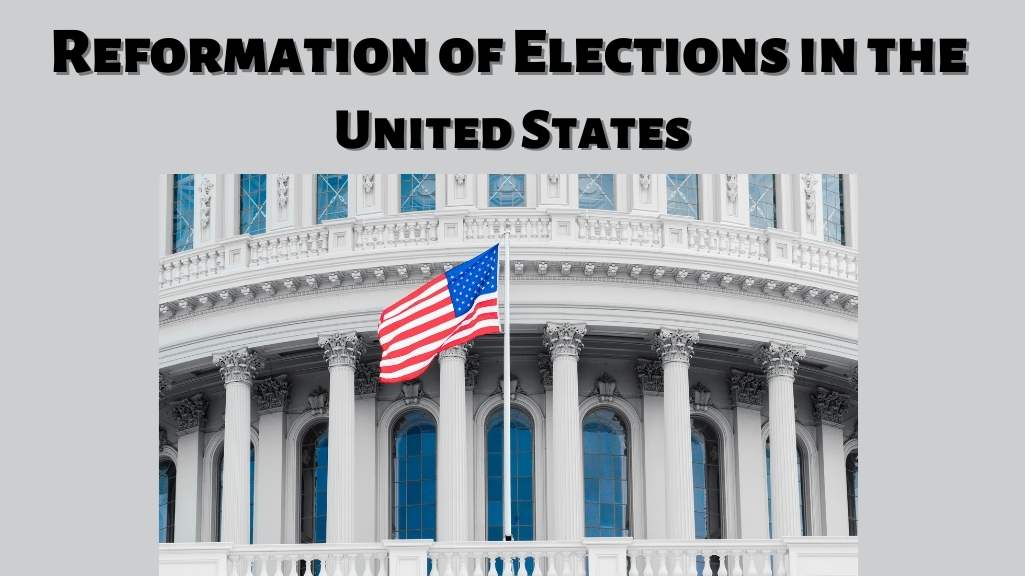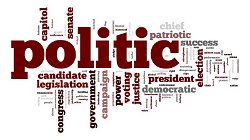Reformation of Elections in the United States
Alvish Asher
. 3 min read
Electoral reform is a broad term that covers a variety of different things, one of which is making electoral processes more responsive to the desires and expectations of the general public. However, not every modification to the electoral process qualifies as electoral reform. Electoral change can only be referred to as reform if its primary goal is to improve electoral processes, such as by encouraging increased impartiality, inclusiveness, transparency, integrity, or accuracy. Otherwise, the term "reform" cannot be used to describe the change.

Alterations made on a regular basis may also have a deleterious effect on the long-term viability of an EMB's operations
Adjustments to the Procedure:
Initially, the Electoral College was presented to the Constitutional Convention as a compromise between the two primary proposals that were being debated at the time, which were the election of the President by the general population and the election of the President by Congress. Other attempts to change the system have been made, most notably after instances in which a candidate wins the popular vote but loses in the Electoral College. Currently, the system remains unchanged.
Key Issues in Electoral Management: Voter Participation, Representation, District Delimitation, and More
They may focus on key electoral issues like voter participation and representation, the delimitation of electoral districts, voter registration, the registration and oversight of political parties, and the improvement of electoral integrity. Other potential targets include the delimitation of electoral districts. They may also focus on particular aspects of the electoral process that are technical or technological in nature, such as the implementation of new procurement or employment procedures, voter registration systems, voting and vote-counting methods or systems, and so on.
Recent Changes and Improvements in the Supervision and Regulation of Political Parties by EMBs
The function of EMBs in supervising and regulating the activities of political parties has been subjected to significant changes in recent years, which have resulted in improvements. Reforms in the administration of state funding of political parties and candidates' election campaigns, as well as reforms in the qualifications for registering parties and candidates to compete in elections, are some of the consequences of legal reforms aimed at leveling the playing field in political competition. Other outcomes include reforms in the qualifications for registering parties and candidates to compete in elections.
The Voting Rights Act of 1965 was signed into law by President Lyndon B. Johnson on August 6, 1965, after Congress agreed to its terms
The bill made it illegal to impose literacy tests, poll taxes, and other requirements on voters in the south, which had the effect of denying blacks their right to vote. In the event that local registrars did not comply with the law, it authorized the attorney general of the United States to send federal officials to the South to register black voters. Additionally, it authorized the federal government to supervise elections in districts that had disfranchised African Americans. The passage of the Voting Rights Act in 1965 ushered in a new era of political power dynamics in the South.
What changes have been made?
The elections for the year 2020 were held during the Covid pandemic, and in order to make it easier and safer for people to cast their ballots, voting rules were temporarily relaxed (expanded) in the days leading up to the polling places. This was a contributing factor that led to record levels of participation. Since then, a number of states have made these voting reforms more long-term and consistent. However, some supporters of the former President Donald Trump contend that as a direct consequence of this, there was widespread voter fraud in the 2020 election, which, according to them, contributed to the victory of President Joe Biden.
Expanding Voting Access for Voters with Disabilities: Proposed Legislation in Missouri and Other States
At least seven bills, some of which have already been pre-filed, have been introduced or are in the process of being pre-filed in four different states to expand voting access for voters with disabilities. Two pieces of proposed legislation in the state of Missouri would mandate the provision of at least one voting machine per polling location for use by voters who are blind or visually impaired in election regions that contain more than 350,000 residents, and would mandate the provision of at least one such voting machine in election regions that contain fewer than 350,000 residents.
Empowering Voters with Disabilities: Proposed Legislation in New Hampshire, Rhode Island and Indian
Students with disabilities who are 17 years old or older would be required to have the topic of voter registration discussed as part of their education or accommodation plans under a bill that would be passed in New Hampshire. The deadline for voters with certain disabilities in Rhode Island to request a mail ballot would be extended if two different bills were passed. A proposed piece of legislation in Indiana would make it possible for voters with disabilities to be added to a permanent absentee voter list.
More Stories from
Power and Pitfalls of Celebrity Endorsements in Politics
The article explores the role of celebrities in politics, focusing on their influence in India and Pakistan.
India's New Parliament Bhavan: An Icon of Modernity and Functionality
The New Parliament Bhavan is a cutting-edge architectural marvel in New Delhi, India, serving as the modernized hub of the nation's democracy.
Child Marriage: A Global Challenge to Childhood Rights and Development
This article sheds light on the pervasive issue of child marriage, where millions of young girls and boys are married off before the age of 18.
Mastering Social Etiquette: Essential Tips for Polished Social Skills
It emphasizes the importance of being knowledgeable about social etiquette and paying attention to subtleties to avoid awkward situations.






.png?width=40&aspect_ratio=1:1)




.png?width=40&aspect_ratio=1:1)